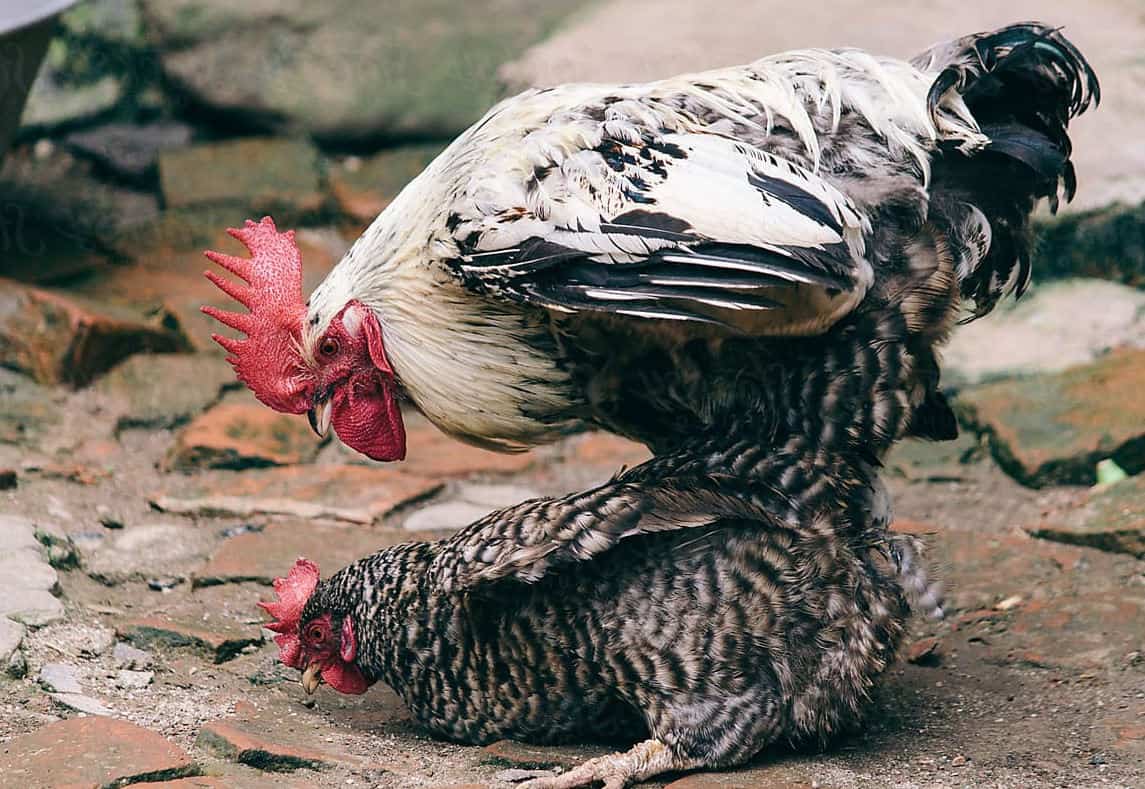Raising a rooster and hen can be a rewarding experience, especially for those who love animals and want to get a closer look at the fascinating birds. Chicken husbandry is the practice of keeping and caring for chickens, including roosters and hens. This article will provide the basics of chicken husbandry to help you start raising a healthy flock of chickens. From selecting the right breeds to setting up a coop and caring for your chickens, this guide will help you become an expert in raising roosters and hens.
Basics of Chicken Husbandry
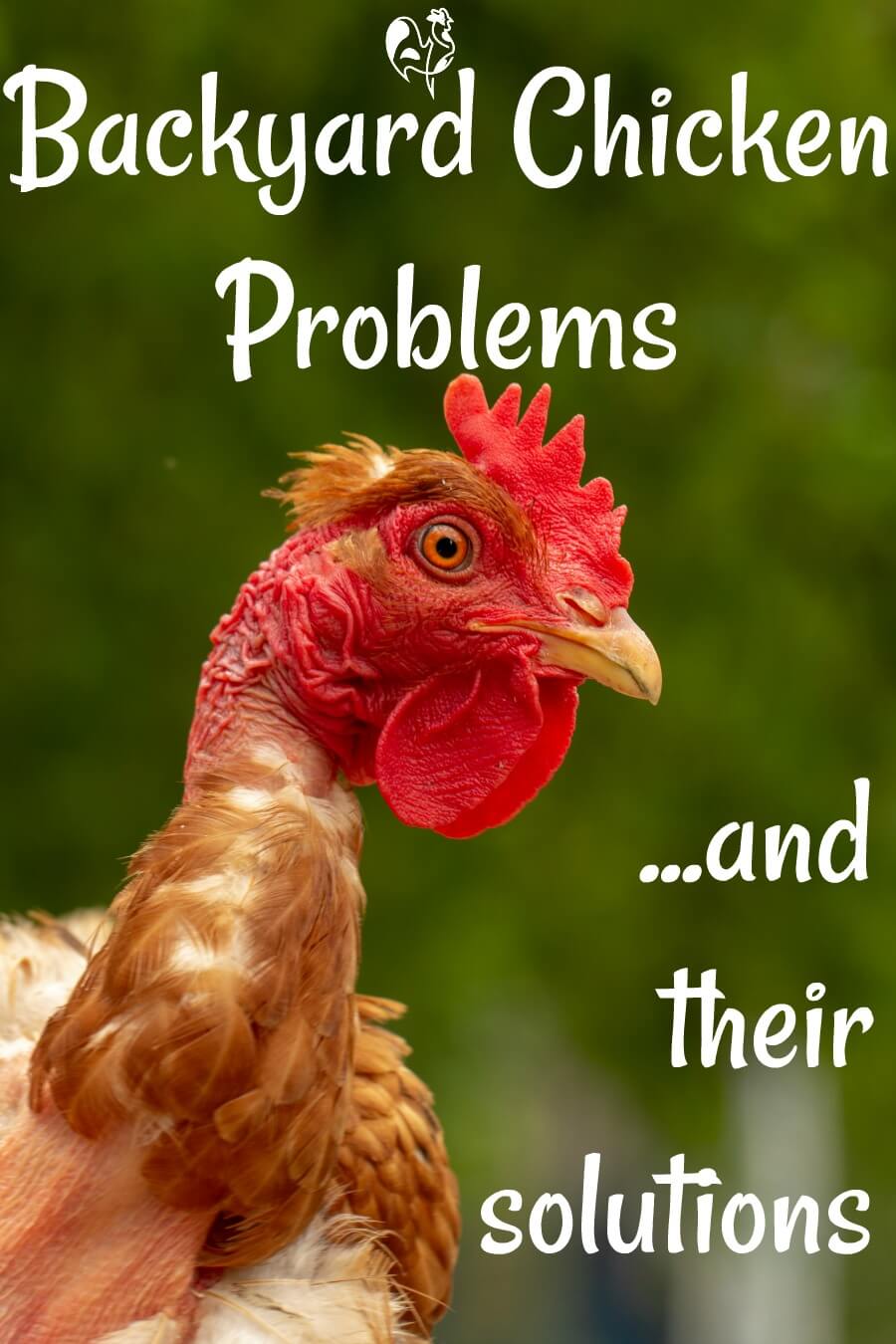
Feeding Chickens
Chickens require a balanced diet of protein, carbohydrates and minerals. Protein sources include mealworms, insects, sunflower seeds, cooked eggs, and chicken feed. Carbohydrates should be made up of grains such as corn, wheat, barley and oats. Minerals can be obtained from oyster shells, limestone and bone meal. Additionally, chickens enjoy kitchen scraps such as vegetable peelings, rice, and cooked pasta.
Housing Chickens
Housing chickens is an important part of chicken husbandry. It is important to provide a secure and comfortable environment for your chickens. A chicken coop should be well-ventilated and include nesting boxes, a feeder and waterer, and roosts for the chickens to sleep on. Additionally, the coop should be cleaned regularly to prevent the spread of disease.
Breeding Chickens
Breeding roosters and hens is an important part of chicken husbandry. Before breeding, it is important to ensure that the rooster and hen are of the same breed and age. Additionally, the rooster should be free of any genetic defects. The hen will then lay eggs which should be incubated until they hatch. Once the chicks are born, they should be placed in a brooder until they are old enough to be moved to the coop.
Benefits of Keeping Roosters and Hens
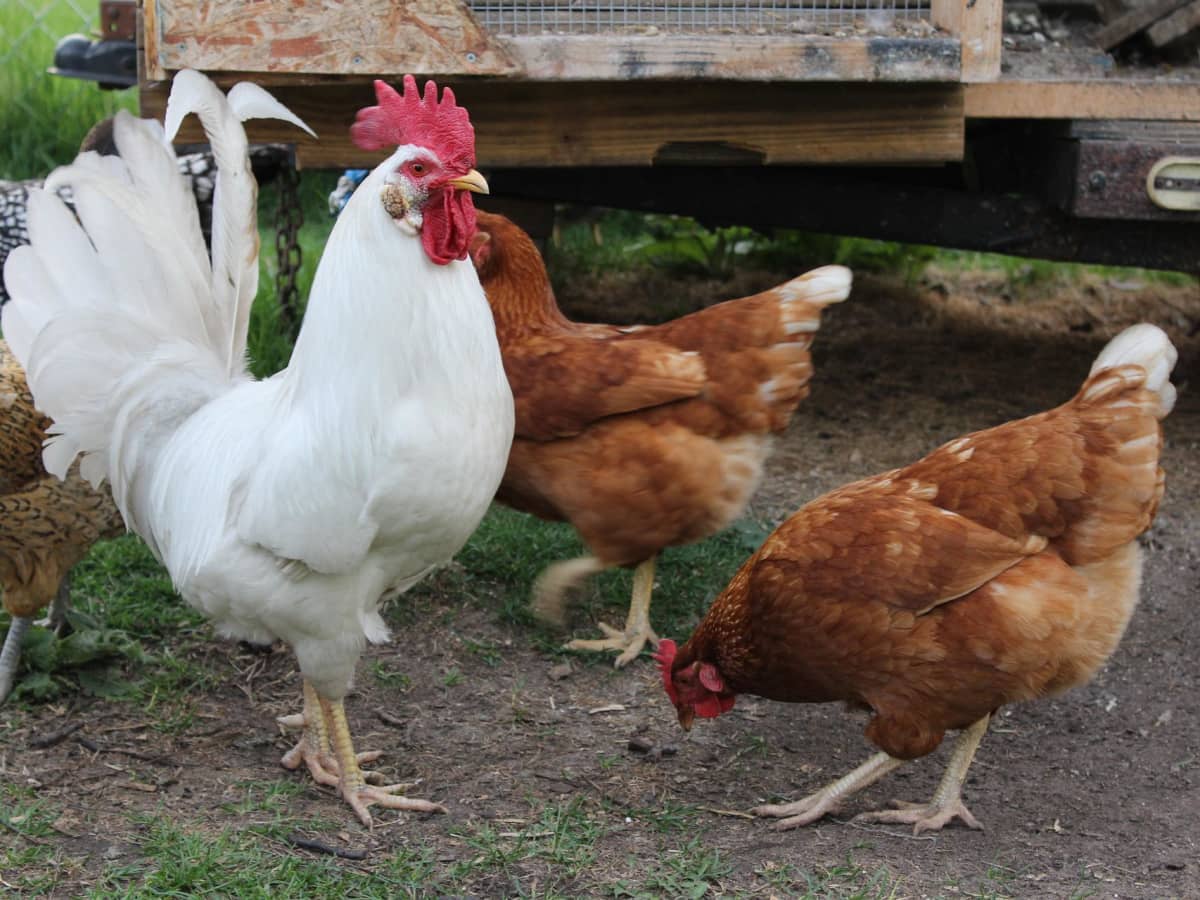
Eggs: Keeping a rooster and hen is beneficial for a steady supply of fresh eggs. Hens lay an egg almost every day and are a relatively inexpensive source of protein for households.
Pest Control: Chickens are great for keeping pests away from your garden and yard. The chickens eat bugs and insects, as well as weeds and other vegetation, which can help keep your garden and yard free of unwanted pests.
Compost: The chickens’ droppings are a great source of compost for the garden. The droppings can be mixed with other organic material to create a nutrient-rich soil.
Companionship: Keeping roosters and hens can be great companions for both children and adults. They can provide fun and entertainment, and they can even help reduce stress and anxiety.
Meat: For those who are interested in raising and butchering their own poultry, roosters and hens can provide a source of fresh meat. It is important to note, however, that roosters and hens should not be kept together for this purpose, as roosters can become aggressive and cause the hens harm.
Tips for Raising Roosters and Hens
Feeding Roosters and Hens
Provide a balanced diet of chicken feed, grit, and fresh vegetables. It is important that chickens have access to clean water at all times. Provide a mixture of commercial chicken feed and kitchen scraps to ensure a balanced diet. Consider providing a vitamin and mineral supplement for chickens, especially in the winter months.
Housing Roosters and Hens
Build a secure chicken coop to protect chickens from predators and the elements. Provide adequate ventilation, nesting boxes, perches, and scratching areas. Use predator-proof fencing to keep chickens safe from raccoons and other predators. Clean the chicken coop regularly to prevent the spread of disease.
Breeding Roosters and Hens
When selecting breeding stock, look for birds with desirable attributes such as good egg production and disease resistance. Introduce roosters and hens carefully to ensure compatibility. Monitor hens closely during the breeding process to ensure they remain healthy. Provide additional feed to hens during the breeding process to ensure they receive proper nutrition.
Common Health Issues with Roosters and Hens
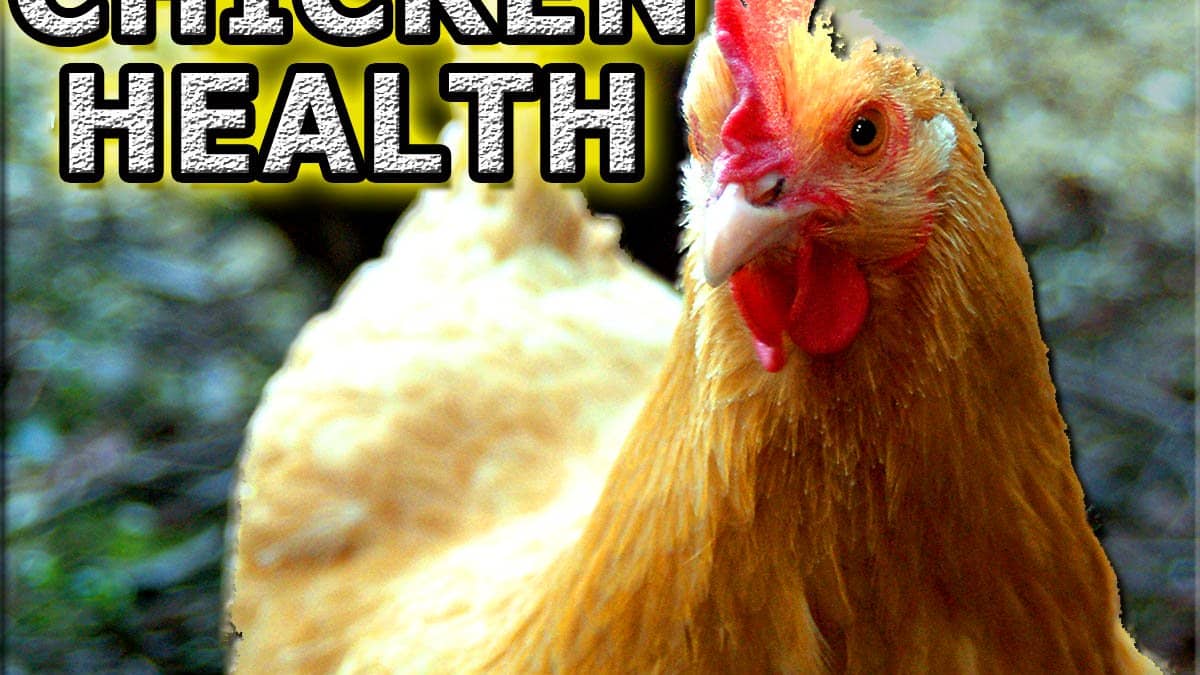
Parasites: Roosters and hens can both be affected by parasites such as lice, mites, and worms. Regular deworming and mite treatments are recommended to keep chickens healthy.
Coccidiosis: Coccidiosis is a common digestive disorder in chickens caused by a microscopic parasite known as coccidia. It can cause diarrhea, loss of appetite, and death in chickens. Treatment involves antibiotics, and prevention involves keeping the coop and area around the chicken run clean and dry.
Respiratory Diseases: Respiratory diseases in chickens are caused by bacteria and viruses, and can cause sneezing, coughing, and difficulty breathing. Vaccination is an important tool in the prevention of respiratory disease.
Vent Gleet: Vent gleet is a contagious bacterial infection of the reproductive organs in chickens, and it can cause problems with fertility and egg production. Treatment includes antibiotics, and prevention includes good sanitation and hygiene.
Heat Stress: Heat stress is a common problem in chickens, especially during hot weather. It can cause lethargy, decreased appetite, and even death in extreme cases. Provide shade and plenty of cool, fresh water to reduce the risk of heat stress.
Marek’s Disease: Marek’s Disease is a contagious viral infection that can cause paralysis, blindness, and even death in chickens. Vaccination is the best way to prevent it, although even vaccinated chickens can still contract the disease.
Common Behavioural Issues with Roosters and Hens
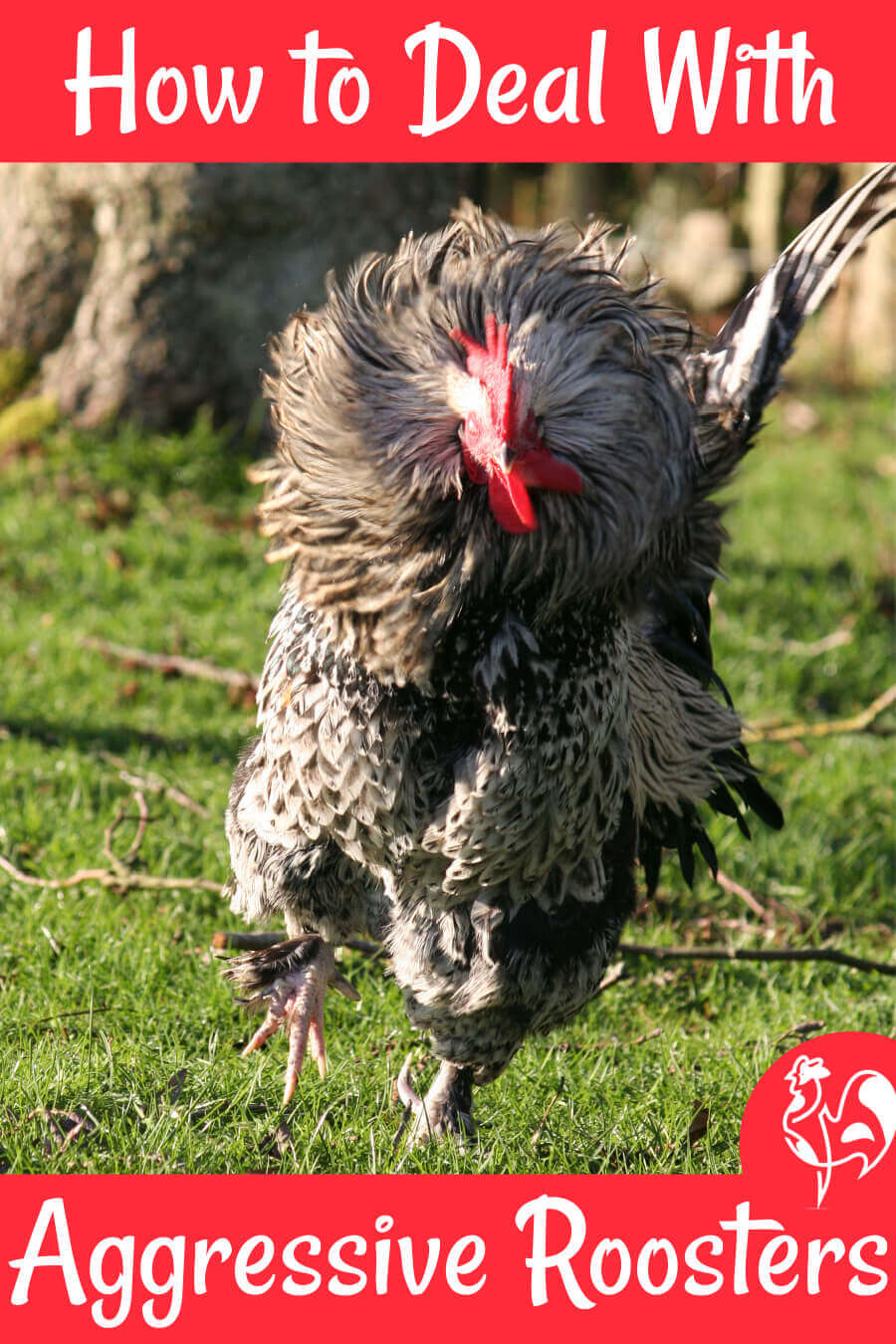
Due to their different natures, roosters and hens can exhibit certain unwanted behaviours that can be disruptive to the wellbeing of other chickens in the coop and the farmer. Roosters are naturally aggressive and territorial, and can display dominance by attacking other chickens or crowing excessively. Hens may become overly broody, which can lead to them becoming aggressive towards other chickens and defending a certain area of the coop. Roosters and hens also have the tendency to wander off and can wander into unsafe areas and be vulnerable to predators.
To prevent these behavioural issues, it is important to provide adequate space in the coop and give chickens plenty of opportunities to exercise and explore. Providing enough food and water is also essential to the chickens’ wellbeing. If the chickens are overcrowded, they may become more aggressive and territorial. Additionally, providing a secure fence with no gaps or holes can help prevent chickens from wandering off. If a rooster is displaying overly aggressive behaviour, it is best to isolate him in a separate area until he calms down. Finally, it is important to keep the coop clean and free of debris to prevent any health issues.
How to Handle Roosters and Hens
Roosters and hens must be handled with care, especially during the early stages of raising them. Roosters should be handled gently and with respect, as they can become aggressive at times. Ensure that your hands are clean and dry when handling them and avoid sudden movements. When handling hens, always support their bodies with both hands, as they can easily become frightened. It is important to remain calm and avoid loud noises when handling them.
When putting chickens back in the coop, make sure to close the door securely to keep out predators. To avoid injury, never grab a chicken by its wings. Instead, use both hands to gently cup the chicken, supporting its body and legs. When holding a rooster, use one hand to support its body and the other to hold its legs.
When it comes to feeding chickens, always provide them with a balanced diet of grains, vegetables, and protein sources. Make sure that the feeders are kept clean and regularly filled with food. It is also important to provide your chickens with plenty of clean water, as they need it to stay healthy and hydrated.
When cleaning out the coop, always wear protective gloves and a mask. Remove any wet bedding and replace it with fresh bedding. Make sure to clean the roosts, water containers, and feeders regularly. Lastly, provide your chickens with plenty of space to roam and scratch.
These are just a few tips on how to handle roosters and hens. Proper handling and care is essential for healthy and happy chickens.
Frequently Asked Questions
What Kind of Environment is Best for Raising Chickens?
Chickens require a clean, safe, and dry environment. They should have access to fresh, clean water and a balanced diet, including plenty of fresh greens and grains. They should also have plenty of space to roam and access to sunshine and fresh air. The environment should also provide protection from predators and extreme weather conditions. Roosters and hens should also have a secure place to roost or nest. It is important to keep their living space clean and hygienic to prevent the spread of diseases.
What Equipment is Essential to Raising Chickens?
Coop: A secure structure to house the chickens and protect them from predators. Feeder: A container to hold the chickens’ food. Waterer: An enclosed container to hold the chickens’ water. Nesting Boxes: A box to provide a private space for the hens to lay eggs. Run: A secure enclosed area to let the chickens roam and forage for food. Heat Lamp: A lamp to provide heat for the chickens during cold weather. Ventilation: Proper ventilation to ensure the air quality in the coop remains healthy.
Are there any potential health risks associated with raising chickens?
Yes. Chickens, like all animals, can carry diseases. Some of these diseases can be passed to humans, which is why it’s important to follow proper safety protocols when raising chickens. Potential health risks of raising chickens include:
- Salmonella: Chickens can carry salmonella, which is a bacteria that can cause serious illness in humans.
- Avian Influenza: Avian influenza is a virus that can be spread from bird to bird, and from bird to human. This virus can cause serious illness and even death in humans.
- Tick-borne Diseases: Chickens can carry ticks, which can transmit diseases like Lyme disease and Rocky Mountain spotted fever to humans.
- Mites and Lice: Chickens can be infested with mites and lice, which can cause skin irritation and other symptoms in humans.
It’s important to take preventive measures to reduce the risk of these diseases, such as proper hygiene and regular veterinary visits. Additionally, it’s important to be aware of any signs of illness or distress in your chickens, and seek veterinary attention immediately if necessary.
How often should chickens be fed and watered?
- Feed: Chickens should be fed at least twice a day, in the morning and in the evening. It is important to provide plenty of fresh, clean food and to check regularly to make sure the feeders are working properly and not clogged.
- Water: Chickens require access to water at all times. Their water should be changed every day to ensure it is clean and free of contamination. If the weather is warm, the water should be changed more often.
What are the Recommended Vaccinations for Chickens?
Vaccinations are a critical part of chicken husbandry and can help protect your flock from several diseases. The most common vaccinations for chickens are:
- Infectious Bronchitis
- Mycoplasma Gallisepticum
- Infectious Laryngotracheitis
- Marek’s Disease
- Avian Influenza
- Newcastle Disease
- Avian Pox
- Coccidiosis
Vaccinations for chickens should begin at 8 weeks of age. Vaccines must be administered in a specific order and may require multiple doses. It is best to consult a veterinarian to develop a recommended vaccination schedule for your flock.
Conclusion
Raising chickens is a rewarding experience that can provide fresh eggs, fertilizer, and entertainment. By following the basics of chicken husbandry, such as providing adequate housing, fresh food and water, and proper medical care, you can ensure chickens live a healthy and safe life. With a bit of patience and dedication, you’ll be able to reap the rewards of keeping chickens in no time.
